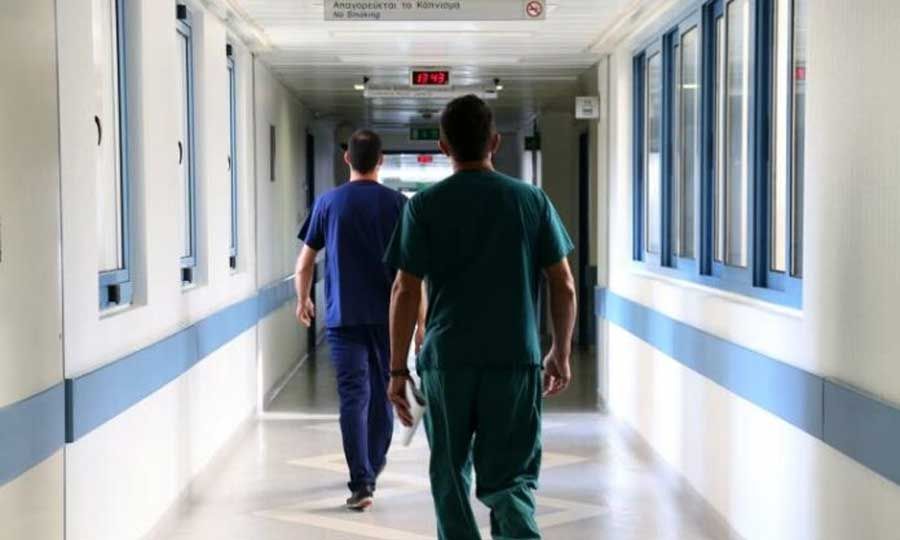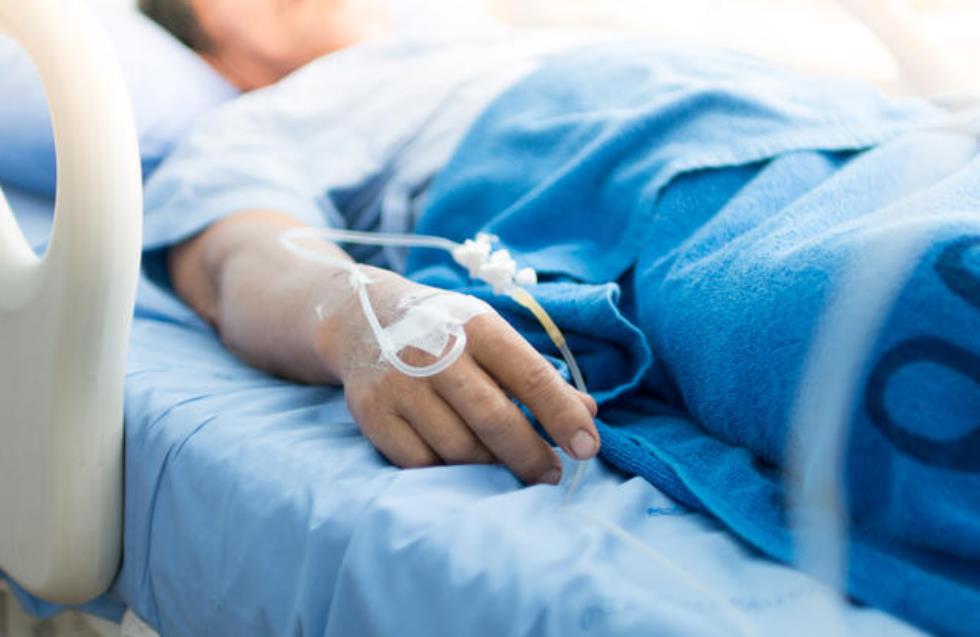

Pavlos Neophytou
An elderly patient who suffered a stroke had to endure a grueling wait for a hospital bed at Pafos General Hospital's Intensive Care Unit (ICU) on Saturday, 22nd July. The incident, announced by Mayor Phedonas Phedonos at 8:45 p.m. the same day, has sparked public outrage and become a focal point of the ongoing debate concerning similar issues in other public hospitals. The patient, accompanied by anxious relatives, lay on a stretcher in a First Aid corridor from 2 p.m. Saturday afternoon until Sunday afternoon, as the medical staff struggled to find a vacant bed. Meanwhile, the ICU remained abuzz with patients, overwhelmed by an influx of tourists. Despite the staff's periodic attention, attempts to secure admission to other hospitals proved futile. They were all confronted with the same issue - a scarcity of available beds. The pressing matter has drawn attention to the need for a functional mechanism to prevent patients from being left without proper care and accommodation. Public opinion remains divided, with citizens demanding swift and practical solutions to this problem across the country's healthcare facilities.
According to reliable information obtained by "K," the delay in admitting patients, lasting not only for hours but even days, has become a distressingly common occurrence. This phenomenon applies to individuals in urgent need of ward admission, including severe cases, as no hospital within the GESY system, whether public or private, can promptly accommodate them. This glaring gap in the healthcare system contradicts President Christodoulides' promises to bring about positive change. Shortly after assuming the Presidency of the Republic, he symbolically visited a public hospital, specifically the CICU in Limassol, emphasizing his commitment to addressing healthcare challenges and providing timely solutions. The message conveyed was, "We have acknowledged the diagnosis, and we are here to facilitate the cure."
Paphos General Hospital's Cardiology Clinic Director, Dr. Joseph Moutiris, took action the following day to address the issue of overcrowding temporarily. In an effort to make room for patients from various specialties, including TAEP, he discharged patients under his care. However, Dr. Moutiris emphasized that the problem of overcrowding runs deeper and cannot be effectively resolved through temporary measures or the dedication of a few healthcare professionals.
The responsibility lies with the HIO
Health Minister Poppy Kanari has called on the Health Insurance Organisation (HIO) to fulfill its responsibilities towards eligible subscribers and ensure the availability of beds in contracted hospitals. The minister's statement came in response to a recent incident at Paphos General Hospital, where a shortage of beds was reported. During an interview with the K newspaper, Minister Kanari questioned why the HIO does not take responsibility for ensuring adequate bed availability, especially during critical periods like the summer, when tourist influx leads to an increase in the population of coastal towns such as Limassol, Paphos, and Famagusta. Public hospitals in these areas are facing a "crisis" due to overcrowding, making it challenging to provide beds for patients. The shortage of beds at Paphos General Hospital is attributed not only to the population surge but also to ongoing construction works that have resulted in a reduced number of available beds. The completion of these works, initially scheduled for mid-June, has been delayed, and the wards are now expected to be delivered by mid-September.
Minister Kanari highlighted the need for the HIO to establish a mechanism to secure beds in private hospitals, which are part of the Government Health Services (GESY). She emphasized that resolving this issue is crucial, given the current absence of doctors and nurses due to leaves. The Health Minister expressed her intention to hold discussions with the president of the HIO to urgently address this matter. With the month of August approaching and an anticipated increase in tourist traffic, Ms. Kanari foresees the situation worsening, particularly in the coastal provinces. Ensuring timely access to hospital beds is a pressing concern that requires immediate attention from the relevant authorities, as citizens who pay for insurance deserve a reliable and responsive healthcare system.
The new Accident and Emergency Departments
Andreas Papaconstantinou, the Director General of the HIO, has acknowledged the system's failure during the incident that occurred on Saturday. He explained that currently, for weekend emergencies, only hospitals equipped with First Aid capabilities can respond, and there is only one private sector hospital with such facilities in Limassol. Papaconstantinou addressed the puzzling situation where one side claims to have requested service for the patient from the private hospital, while the hospital denies receiving any such request. In response, an investigation is underway to ascertain the facts surrounding the matter.
The evident lack of private hospitals with emergency departments within GESY and the challenges in coordinating mutual assistance among hospitals highlight the absence of a comprehensive mechanism to facilitate patient transfers. This mechanism should enable hospitals that are unable to provide care to transfer patients to suitable facilities, promote effective communication between hospitals, and investigate the reasons behind any failure to respond. Papaconstantinou concurs with the need for such a mechanism and revealed that efforts are being made to complete it by the end of the year, relying on the available data:
- In September, Polyclinic Health in Limassol will become part of GESY, operating with its Accident and Emergency Department.
- Come October, the Apollonio Clinic in Nicosia is also set to commence its Accident and Emergency services.
- Next week, the HIO has scheduled meetings with the private hospital "Evangelismos" in Paphos.
- Following that, discussions will focus on the situation in Larnaca.
Patient selection
The integration of First Aid or Accident and Emergency Departments for private clinics within GESY raises important considerations. Charalambos Papadopoulos, President of the Federation of Cyprus Patients' Associations (CPAA), shed light on the matter in an interview with "K." According to regulations, such a hospital must possess specialized doctors and corresponding clinics capable of handling challenging cases promptly while providing the necessary medical care.
Papadopoulos emphasized the challenge of incorporating First Aid into the GESY system, as it requires keeping a certain number of beds vacant for potential emergencies, allowing patients to be seamlessly transferred within the system. He expressed concerns about the current practice, where private clinics selectively accept cases, leading to a need for a mechanism to ensure proper management and eliminate arbitrary patient selection.
On the other hand, the OKyPY (Organization of Cyprus Health Insurance) views the situation differently. Spokesperson Charalambos Harilaou stressed the need for a unified mechanism to facilitate the transfer of cases from one GESY-contracted hospital to another when the initial facility cannot manage the situation for various reasons. This approach aims to reduce response times for emergency cases, ultimately benefiting the patient. Harilaou highlighted existing cooperation between GESY hospitals, public, and private, but advocated institutionalizing a mechanism with clear criteria to streamline the process further.
[This article was first published in Kathimerini's Sunday edition and translated from its Greek original]
































